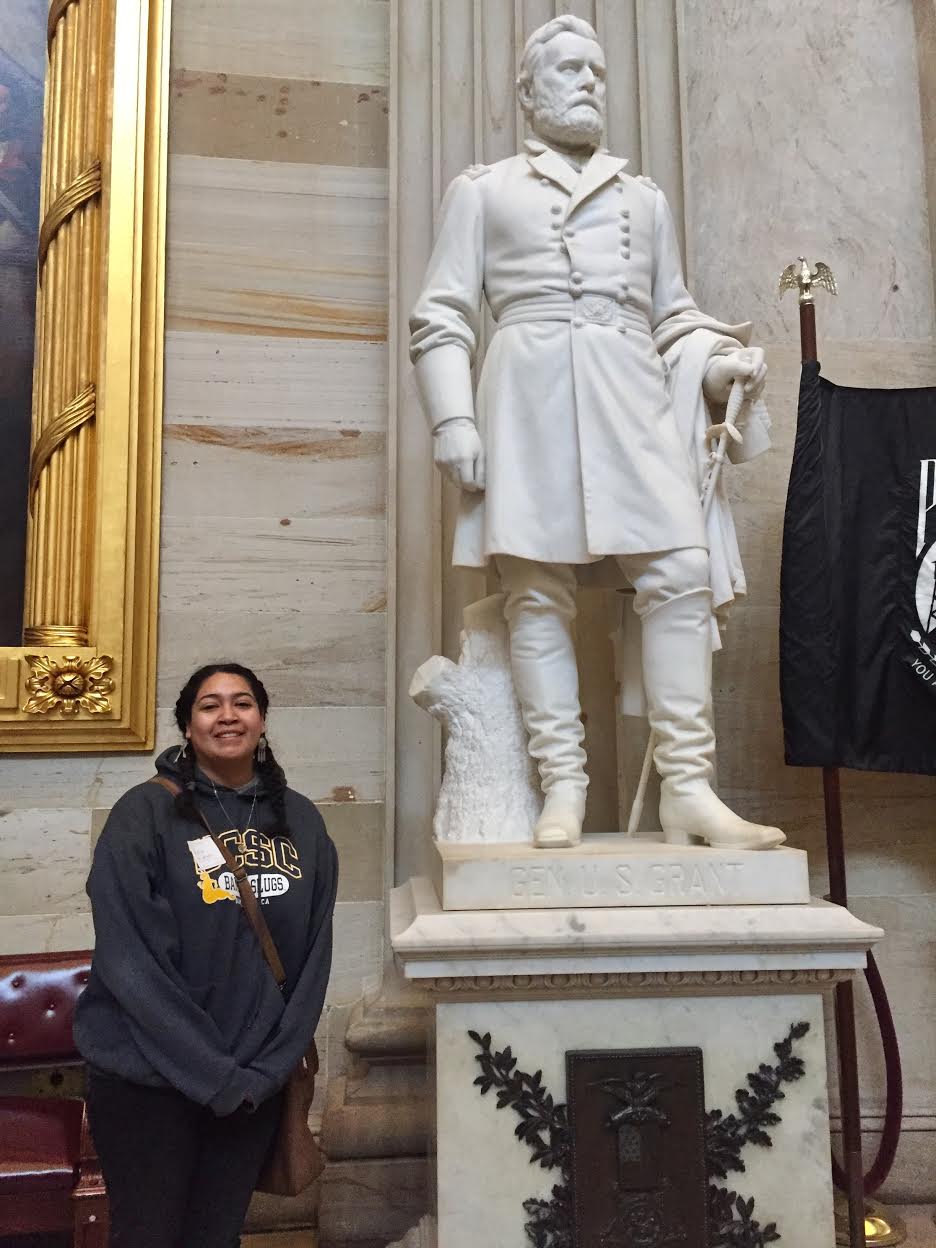The Capitol Through an Anthropological Lens
The Capitol Through an Anthropological Lens
By Althea Knapp, Anthropology Student
For many students, it is imperative to experience work in the job field they are considering joining after college. For some anthropology students, this means ethnographic research or archeological field school but for 4th-year Anthro-History double major Nina Ibarra, this meant participating in the UCDC program in Washington DC.
UCDC is a quarter/semester long internship program sponsored by the University of California that allows undergraduate students of various majors to participate in internships in the capital in a variety of different fields. This program is open to undergraduate students from any of the University of California campuses. Many students who participate in UCDC are politics or legal studies majors wanting experience in congress or journalism but many forget that Washington DC is home to some of the most prominent museums and archives in the United States.
Nina Ibarra chose to apply to the program after a history professor encouraged her to explore her interest in museum curation and archival work. While many people consider UCDC a political program, Ibarra’s anthropological interest allowed her to make the internship historically and anthropologically focused. She started her programming interning at the Smithsonian Museum of American History. However, Ibarra was lucky enough to be present in DC during the three-week-long government shut down which was both a blessing and a curse. Since the Smithsonian is government funded, she had to switch to a new internship but she was able to experience a whole new side of the capitol that she didn’t expect. Due to many government institutions being closed she spent time exploring smaller museums in DC that were not government funded, which she claims was one of her favorite parts of her experience.
Ibarra’s new internship was with the African American Civil War museum where she worked cataloging artifacts for the museum and doing archeological work. While there, she was able to observe the several protests that took place during the government shut down, as well as the iconic Womens March. She claims that these marches were unlike any she had seen before, with entire city blocks and the National Mall completely blocked off. When asked what her favorite part of her experience, she claims it was her experience in museums, particularly the Smithsonian, where she got to see incredible displays and archives of American history along with the negative impacts that come with archeological histories. For example, Native American artifacts stored next to insect exhibits. Ibarra was able to explore her interest in museum curation and see how the combination of history and anthropology is used in these positions. She spoke to curators, many of whom have anthropology degrees, and one in specific who was doing research on a plantation that included Michelle Obama’s ancestors, and was able to learn about the types of fieldwork that curator was doing.
Students who participate in UCDC leave having developed various different skills and with a plethora of diverse experiences. Ibarra says she really got to expand her social skills as she was giving tours to children’s school groups, so she got experience public speaking and learned she loved working in the education portion of museums which was a surprise to her. Along with that, she was able to expand her network and meet so many people, including descendants of African American Civil War veterans.
When asked what kind of advice she may offer to another anthropology student who is interested in UCDC, Nina Ibarra says, “It is 100% worth it, and you should just do it.” She claims it is a different experience for everyone and customizable to your interests and needs. Some students got to meet Alexandria Ocasio-Cortez or Senator Bernie Sanders, while others were able to meet Justice Sotomayor. Through the experience you are able to gain new skills, and learn new things about yourself.

